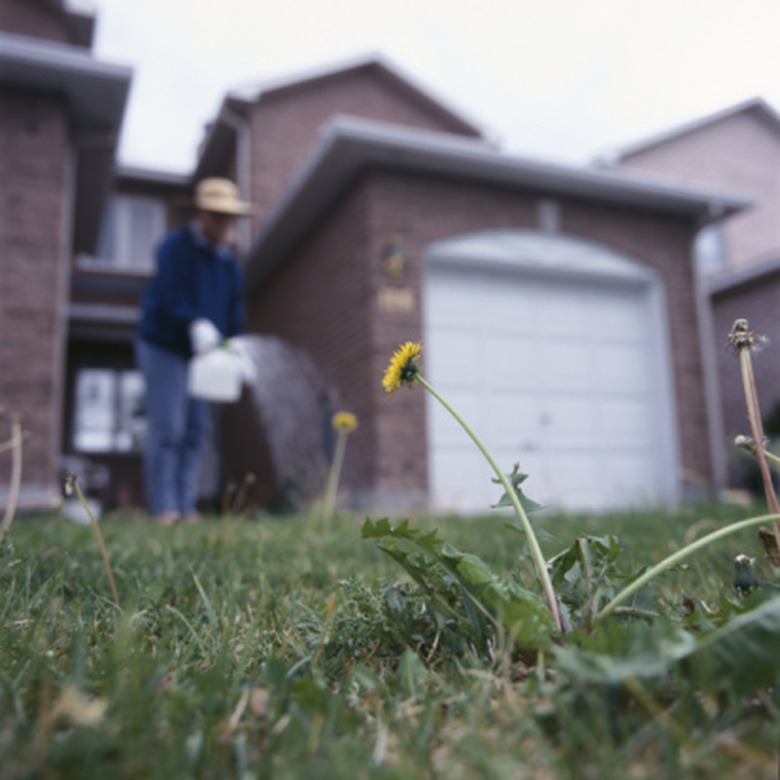What Chemicals Can Affect The Growth Of Plants?
Just like humans, plants too can be poisoned by exposure to toxic chemicals, although the chemicals that poison plants are not necessarily the same ones that poison humans or other animals (and vice versa). Highly lethal insecticides, for example, kill insects but leave plants unscathed. Other chemicals like fertilizers support plant growth and have a beneficial effect.
Herbicides
Herbicides are chemicals designed to kill plants, so if they work as intended they will always have a toxic effect. Some herbicides are broad-spectrum and slaughter most plants when they are present at sufficient concentrations, while others are more specific and are targeted at only certain types of plants, such as weeds. 2,4-D and similar chemicals, for example, preferentially kill broadleaf plants. Other herbicides are "pre-emergence control" and intended to throttle weeds during germination; once the weeds are already established, these herbicides will not be as useful.
- Just like humans, plants too can be poisoned by exposure to toxic chemicals, although the chemicals that poison plants are not necessarily the same ones that poison humans or other animals (and vice versa).
- Other herbicides are "pre-emergence control" and intended to throttle weeds during germination; once the weeds are already established, these herbicides will not be as useful.
Heavy Metals
Heavy metals are toxic for many forms of life, and this is true for plants as well. Elements like cadmium, mercury, lead and nickel can have deleterious effects for plants, especially at high concentrations. Not only can they directly affect plant physiology once they are taken up through the roots, they can also damage soil microbes that help provide nutrients for plants by breaking down organic matter. Some plants seem less afflicted by heavy metals than others, however, and some plants also display a surprising ability to take up heavy metals from the soil and sequester them — possibly offering scientists an interesting way to help clean up toxic waste.
Fertilizers
Unlike heavy metals and herbicides, fertilizers have a positive effect on plant growth. Compounds like ammonium nitrate, potassium nitrate and potassium phosphate will nourish plants by furnishing them with nutrients critical to their growth. Most fertilizers contain the big three macronutrients, nitrogen, potassium and phosphorus; some also contain micronutrients that plants need in small amounts. Despite its beneficial effects on plants, applying excess fertilizer is an unwise idea, since the rich runoff the excess fertilizer creates will promote fast algae growth in local waterways.
- Heavy metals are toxic for many forms of life, and this is true for plants as well.
- Elements like cadmium, mercury, lead and nickel can have deleterious effects for plants, especially at high concentrations.
Acids and Bases
Acids and bases adjust the soil pH, which can have a deleterious effect on plants if the pH wanders outside of the plant's tolerance range. Strong acids like sulfuric, hydrochloric and nitric acids will have a highly detrimental effect, as will strong bases like lye and potassium hydroxide. Weaker bases and acids like bleach, ammonia and phosphoric acid are not good for plants, either. Adding chemicals that will act as bases like crushed calcium carbonate can help to adjust pH if it's close to the desired range.
References
- Proceedings of the 2000 Conference on Hazardous Waste Research; Study on the Effects of Heavy Metals; J.R. Peralta, et al
- "Essential Environment, The Science Behind the Stories"; Jay Withgott, et al.; 2007
